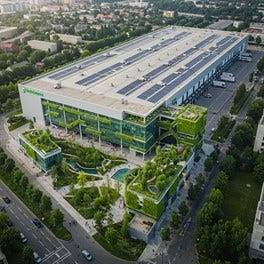1. E-commerce boom
COVID-19 accelerated the shift towards online shopping, leading to a surge in demand for logistics facilities. There has been no turning back, with retailers continuing to invest heavily in their distribution networks to meet consumer expectations for fast and reliable delivery. This trend is expected to continue, with e-commerce projected to account for an increasing share of total retail sales in the coming years.
2. Urbanization and last-mile delivery
With urban areas expanding, the need for last-mile delivery solutions has become critical. Logistics companies are seeking to establish distribution centers closer to urban centers to reduce delivery times and costs. This trend has led to a rise in demand for smaller, strategically located logistics assets within cities or in the close proximity of suburban areas. Additionally, urbanization changes have recently driven the demand for self-storage facilities, in response of smaller average size and decreased affordability of housing.
3. Sustainability and green logistics
Sustainability is becoming a key consideration for investors and operators in the logistics sector. Companies are increasingly focused on reducing their carbon footprint and implementing green practices in their operations. This shift is driving demand for energy-efficient buildings and facilities that meet stringent environmental standards.



